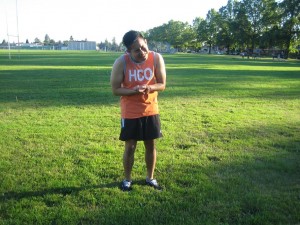Mosquito bites can transmit diseases such as dengue fever, malaria and encephalitis. Mosquitoes usually bite either at dawn or dusk which is the time of the day the mosquitoes are usually active. The male mosquitoes do not bite humans. The females are the ones that bite both animals and humans. Female mosquitos find their prey on exhaled carbon dioxide which is found in sweat and scent. Upon landing on the exposed skin, the female mosquito imbeds her proboscis and draws out blood. The affected person will experience itchiness and a red bump due to the reaction of the body to the proteins that are present in the saliva of mosquito.
Symptoms
- The mosquito bites causes pink or itchy red bumps that are irritating up to 48 hours.
- A mosquito bite allergy causes lesions and hives. A large area of the skin becomes itchy along with inflammation of the lymph system or lymphangitis. Sometimes, the affected person suffers anaphylaxis which is a very dangerous condition that causes wheezing and swelling of the throat and requires immediate medical care.
- Mosquito bites can transmit diseases such as dengue fever or malaria.
- Severe symptoms such as fever, rash, severe headaches, sensitivity to light, nausea and vomiting, meningitis, neurological changes and confusion require assessment by a doctor.
Treatment

- Clean the blisters using soap and water. The individual should avoid pricking the blisters.
- Apply an allergy cream on the affected area.
- Using baking soda can effectively stop the itchiness due to mosquito bites. It is alkaline and helps in neutralizing the pH of the skin and lessens the itchiness of the area. Dissolve one teaspoon of baking soda in a glass of water and soak a clean cloth in the solution then apply it on the affected skin for at least 10-20 minutes. Another way is mixing witch hazel and baking soda together to become a paste, then apply it onto the bitten area and leave it on for at least 10 minutes and then wash it off using lukewarm water for relief from the itchiness.
- Using rubbing alcohol can help lessen the irritation caused by mosquito bites and also lessen the risk of developing an infection. Put a few drops of rubbing alcohol on a cotton ball and then rub it on the affected area to minimize the itching and swelling.
- Apply the prescribed oral antihistamine to lessen the symptoms.
- Toothpaste can also be used to help minimize itchiness due to mosquito bites. For better results, use a peppermint toothpaste since it has anti-inflammatory properties. Dab some toothpaste on the affected skin to help relieve the itchiness.
- Elevate the affected area.
- Apply an ice pack to the affected area to help lessen the pain and swelling. Wrap a few ice cubes or ice pack in a washcloth and then place it on the affected area for at least 10-15 minutes to help lessen the itchiness and swelling. If ice is not available, hold the affected area under cool running tap water for a few minutes.
